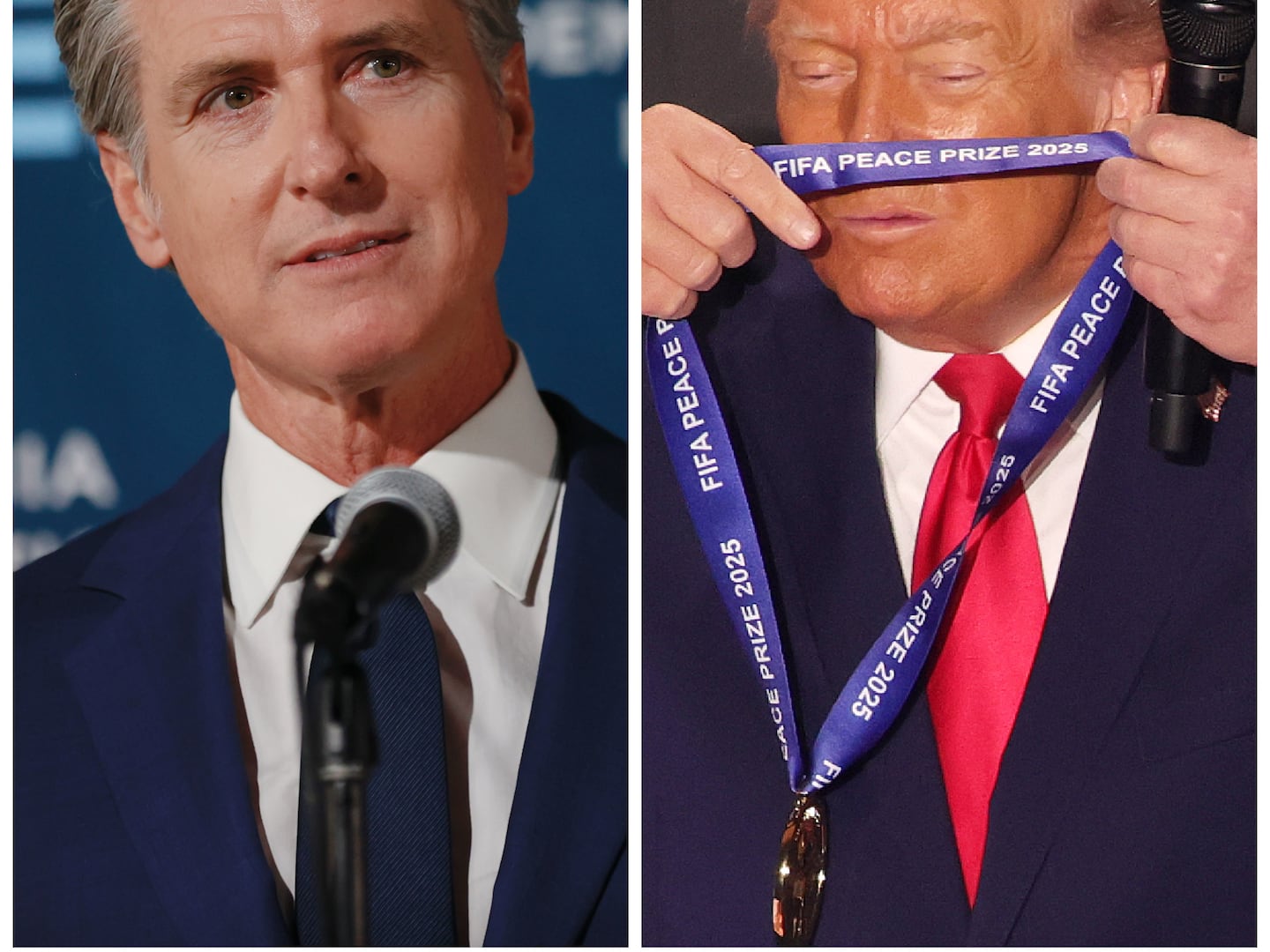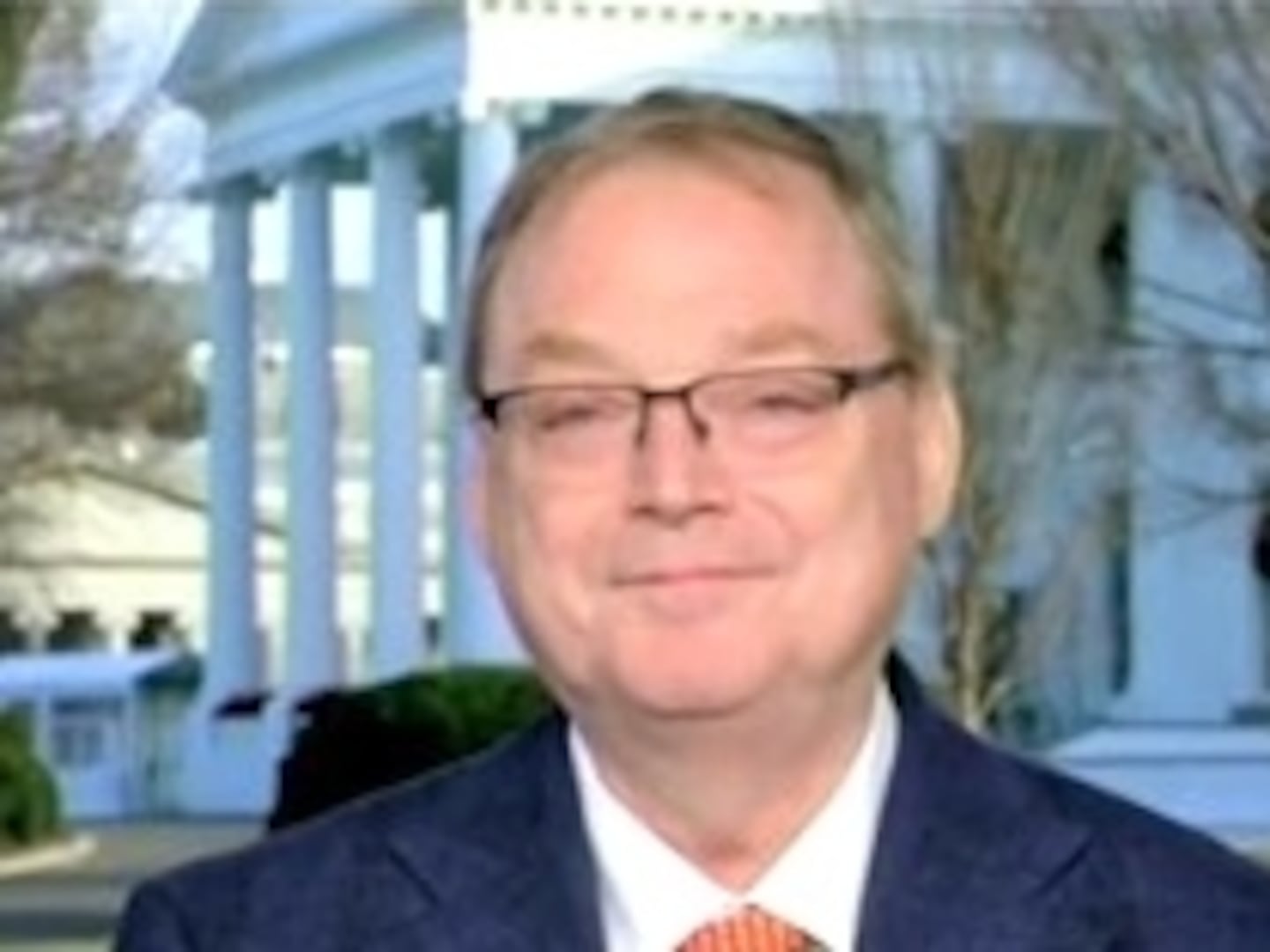
"I brought the English weather with me," bemoans Gillian Tett, the new U.S. managing editor for the Financial Times, as she steps into the Peninsula Fives restaurant in Manhattan last Wednesday morning, dressed in a fuchsia raincoat accompanied by one of those umbrellas large enough to cover the width of a New York City sidewalk. She's a few minutes late for our interview, which can be easily forgiven: She'd only arrived stateside two days prior, and her meeting with me was wedged in between an appearance on MSNBC's Countdown with Keith Olbermann the night before, a day filled with internal meetings on the FT's strategic direction, a jaunt down to Wall Street to report out a column due by the end of the week, and preparations for a speech.
The publicity is all part of a months-long coming-out party here in the States for Tett, whose early outing of the credit-derivatives pyramid scheme that crippled the global financial markets has given her something of a celebrity moment. Or at least as much of a celebrity moment as a financial journalist can have. The horrible financial climate has been great for Tett, who has given the FT the authoritative voice documentating the global economic meltdown, while her camera-ready looks have made her the go-to journalist for television outlets across the globe. In ascending to the highest U.S. editorial position at the Financial Times, Tett has managed to make the august, salmon-hued broadsheet two things never identified with it before: trendy and sexy.
“You have to understand money to understand the world.”
"The FT has become a sort of status symbol, people want to show off that they read it," says Reed Phillips, managing partner of boutique media advisory firm DeSilva & Phillips. "They'd rather leave the FT out on the coffee table than The Wall Street Journal."
"Status symbol" isn't a word recently associated with the newspaper industry, but the FT has been an anomaly. Long thought of as a British newspaper, the FT has quadrupled its circulation in the U.S. to 137,000 and now has more readers stateside than it does in the U.K. (worldwide circulation: 401,000). Meanwhile, its website boasts 2 million registered users, and 126,000 people pay for subscription services—digital products accounted for 73 percent of the FT Group's revenue last year, while advertising only accounted for 19 percent, a near reversal from a decade ago that underscores a desire among all media organizations to be less reliant on advertising.
Financially, the FT is still recovering from the dramatic hit all media organizations took in 2008. According to a Stifel Nicolaus report, FT Publishing revenue grew from $344 million in 2007 to $390 million in 2008 before dropping to $358 million last year. Analyst Drew Crum estimates that revenue won't claw back to 2008 levels until sometime after 2011. Operating income is also being squeezed, declining 47 percent to $39 million from $74 million in 2008.
While the FT's circulation isn't going to grow to 1 million overnight, picking up another 50,000 to 100,000 readers online or in print could have significant impact. Tett's mission is to make the FT an American must-read.
Evidence to support the FT's rising prominence can be found in, of all places, emails from Goldman Sachs' suddenly infamous Fabrice "Fabulous Fab" Tourre, recently unearthed by the SEC.
"Darling, you should take a look at this article..very insightful..more and more leverage in the system," Tourre, the executive who helped design the dubious financial product that sits at the center of the charges against his bank, wrote to one of his girlfriends. The article "Fab" was referencing—"The Unease bubbling in today's brave new financial world"—came from the FT and carried Tett's byline.
But unlike other business journalists who have gained a modicum of fame outside of Wall Street such as The New York Times' Andrew Ross Sorkin or CNBC's Maria Bartiromo, Tett, who talks with both her hands and a lisp, doesn't covet the attention. She dismisses honors, like being named Journalist of the Year by the British press in 2009 and winning the Spear's Award for Financial Book of the Year for Fool's Gold, as "guilt awards" bestowed on her by a discredited media trying to clear its collective conscience for missing the financial crisis' warning signs.
"I'd rather do more absorbing than emitting," says Tett with regard to her preference for asking the questions instead of answering them. "Something's out of kilter if I'm doing more emitting than absorbing."
Modesty aside, there's no doubt that Tett's petite frame masks a fierce competitor who sees, in The Wall Street Journal's general interest news war with The New York Times, an opportunity for the FT to grab a few market-share points by staying true to its core competency of explaining the interconnectedness between politics and business around the globe. Though Tett, an avid skier who forsakes the trails in favor of strapping her gear to her back and climbing up backcountry mountains, will never say that herself, in true British fashion thinking it too impolite to be that in-your-face.
"Our American competitors are quite rigid in their demarcation," was about the saltiest comment Tett would make about the FT's rivals. "We covered the credit crisis better because we are less rigid about who was working on what. There were a lot of great reporters scurrying around looking at credit derivatives, but they weren't getting into the paper or getting on the front page."
Translated into impolite American vernacular, what Tett is saying is that she won't tolerate any territorial bullshit in her newsroom.
Tett says the most surprising aspect of uncovering the credit-derivatives fraud was how completely detached the creators of these financial instruments were from society. She notes, without irony, that Goldman's Tourre was more clear-headed about the whole mess than most others because he was so new to the world of finance, having only been at Goldman for a year.
"The bigger guys weren't saying they were creating monstrosities. He was," says Tett, who wrote Saving the Sun, about the Japanese economic meltdown, before writing Fool's Gold.
For someone who lived the life of a nomad during her younger years—leaving home at 18 to live in Pakistan, followed by Tibet, and later with stints in the Soviet Union, Japan, and other far-flung places—Tett's professional life has been remarkably stable. The FT has been her sole print media home since forsaking social anthropology, in which she holds a Ph.D. from Cambridge University, for journalism in 1993. A mother of two who speaks five languages fluently, Tett calls her decision to enter the media world her "Road to Damascus moment."
"People tend to look at money as this acultural thing, like gravity or electricity," says Tett. "But I realized that you have to understand money to understand the world."
Peter Lauria is senior correspondent covering business, media, and entertainment for The Daily Beast. He previously covered music, movies, television, cable, radio, and corporate media as a business reporter for The New York Post. His work has also appeared in Avenue, Blender, Black Men, and Media Magazine, and he's appeared on CNBC, Bloomberg, BBC Radio, and Reuters TV.






